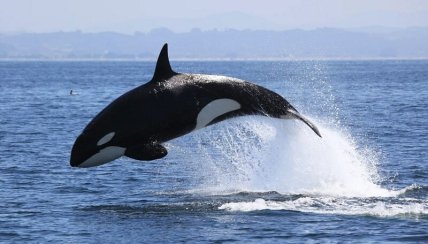A pair of predators scared away all the sharks near South Africa, raising concerns among scientists about the potential consequences (photos, videos).
If you were to ask the average person who the ocean's top predator is, they would likely mention great white sharks. Thanks to the film "Jaws," these creatures have unfairly earned a bad reputation for generations, but even they have their fears.
As noted by ScienceAlert, a striking example is the near-total disappearance of great whites off the coast of South Africa. Once, Dyer Island was considered the "shark capital" and attracted many enthusiasts eager to observe these predators, but now they are rarely seen there. This has already raised concerns among scientists about the changing ecosystem.
The cause turned out not to be human activity, as previously thought, but rather a pair of orcas. Yes, two marine mammals nicknamed Right and Left (due to the shape of their fins) managed to scare away all the sharks in South Africa.

 0
0
In 2022, researchers attempted to determine why sharks began avoiding their favorite spots and attached GPS trackers to 14 of them. It turned out that the sharks would swim as far away as possible at the first sign of orcas and would not return for weeks or even months.
Later, they recorded instances of orca attacks on sharks. In these cases, the target was the liver (and, in rarer instances, the heart) of these large fish.
However, we still do not have an answer to the question of how exactly the orcas realized that shark liver is a delicacy and when they began hunting for it. Additionally, it remains unclear why they continue this behavior.
It might be related to a food shortage, as another pod of orcas off the coast of the U.S. has figured out how to hunt whale sharks.
 1
1
"Orcas are hunting young great white sharks, which could further impact an already vulnerable shark population due to their slow growth and late maturity," scientists say.
Off the coast of South Africa, the absence of traditional predators has already started to shift the balance in the ecosystem, allowing narrow-toothed sharks to fill the newly opened ecological niche. This species was typically preyed upon by great white sharks, but now they are being eaten by orcas.
 2
2
Great white sharks also kept the population of Cape fur seals in check, but now the seals pose a threat to African penguins.
"An ecosystem can only withstand a certain amount of pressure, and the consequences of orcas decimating shark populations are likely to be much more extensive," scientists warn.
Previously, "Telegraph" reported that scientists are studying the Greenland shark. This creature can live for 400 years, and its DNA may significantly influence the advancement of human medicine.